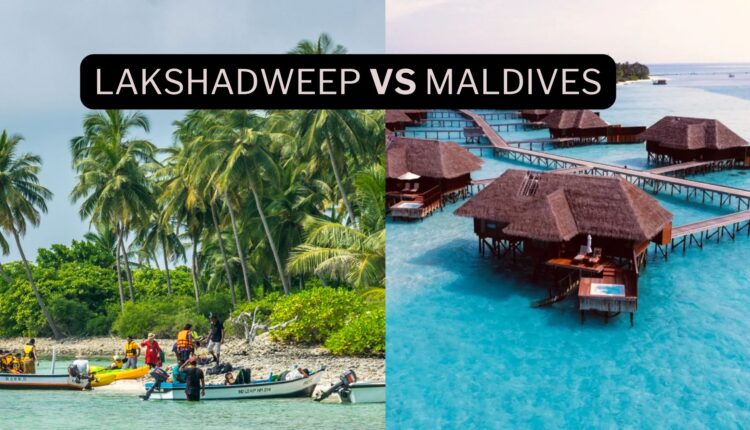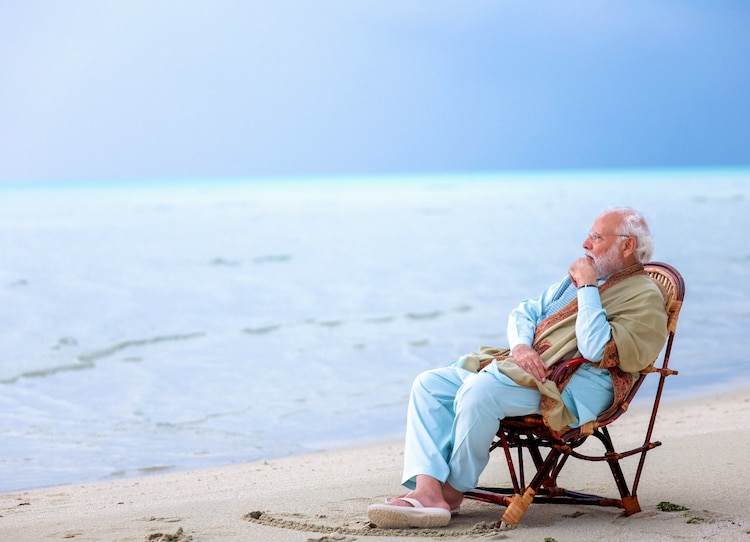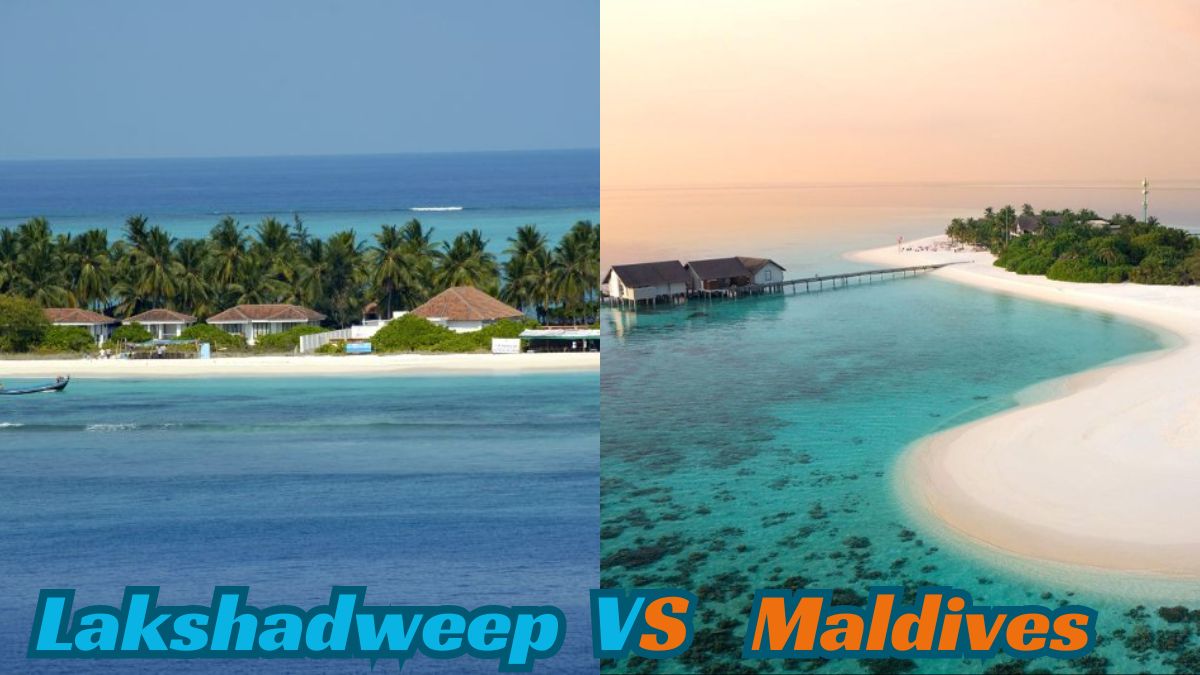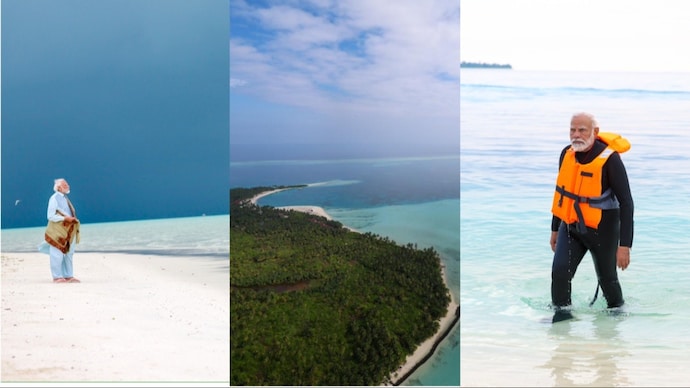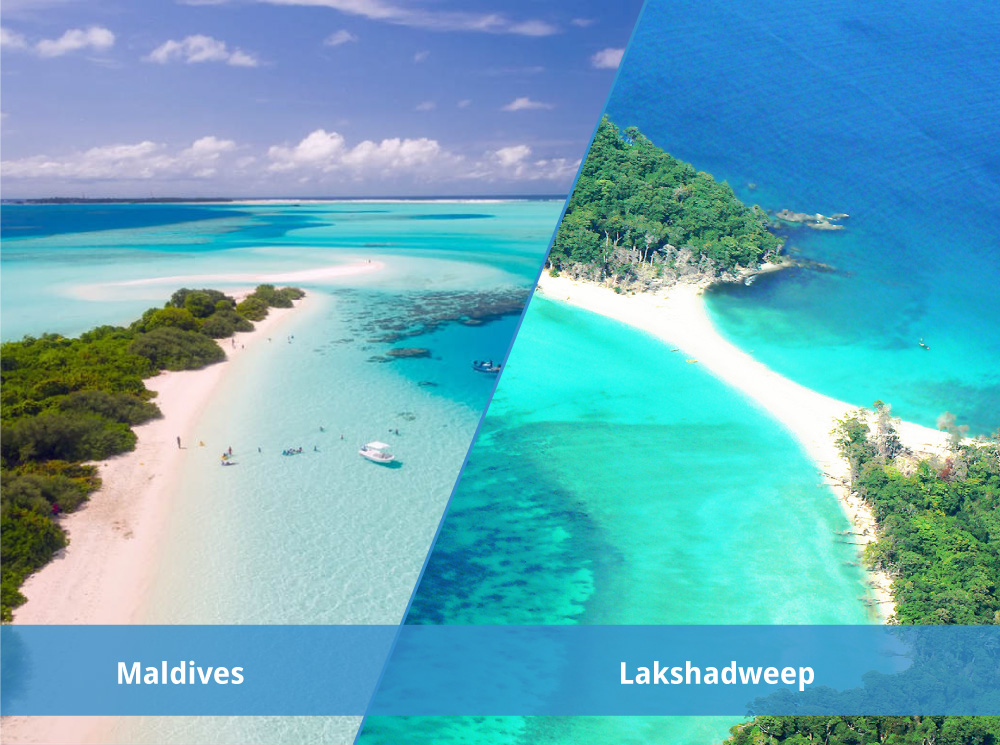Table of Contents
A social media dispute ignited when Indian Prime Minister Narendra Modi posted picturesque photos from the Lakshadweep islands. Comparisons between Lakshadweep, part of India, and the Maldives emerged, with claims that the former was a more appealing destination than the latter, causing stir online. Certain Modi supporters escalated this by advocating for a boycott of the Maldives, triggering outrage among Maldivian politicians. As a result, three officials were suspended by their government due to their responses to the controversy. This uproar also spurred suggestions for the suspension of business relations between the two nations, and this is the major reason Why Indians should visit Lakshadweep over Maldives.
The situation escalated beyond mere comparisons of scenic locales, transforming into a diplomatic and economic quandary, with tensions rising over the online debate about the attractiveness of the respective island destinations. The fallout led to repercussions within the Maldivian political sphere and raised concerns about the potential impact on bilateral ties between India and the Maldives.
The recent controversy surrounding Prime Minister Modi’s visit seems to have positively impacted Lakshadweep. An official Indian government account mentioned that the surge in online searches about the islands surged significantly following Mr. Modi’s visit.
According to the MyGovIndia X account, the worldwide search interest in Lakshadweep has reached its peak in the last two decades. This surge indicates a renewed global fascination with the islands’ natural beauty and cultural richness. The post highlighted how the controversy inadvertently brought attention to the breathtaking landscapes and cultural heritage of Lakshadweep, potentially driving increased interest and awareness about the region on a global scale.
Where is Lakshadweep?
Lakshadweep, an enchanting archipelago nestled in the pristine waters of the Arabian Sea, comprises 36 islands located approximately 400 kilometers away from Kerala’s southwestern coast. Among these islands, only 10 are inhabited by local communities. Administered as a union territory of India, they fall directly under the governance of India’s central government, currently led by Prime Minister Modi.
Renowned for their breathtaking beauty, Lakshadweep’s allure primarily lies in its picturesque white sandy beaches. These islands offer a serene escape, featuring stunning landscapes and an abundance of natural wonders.
The recent MyGovIndia post highlighted Lakshadweep’s defining traits of “natural beauty and cultural richness.” This portrayal emphasizes not only the islands’ stunning landscapes but also their cultural heritage, potentially drawing attention to the diverse cultural tapestry interwoven into the fabric of life on these islands. The characterization of Lakshadweep as a blend of scenic charm and cultural depth underscores its appeal, inviting global fascination and appreciation for its natural splendor and rich heritage.
What is the controversy?
A social media uproar unfolded recently as numerous Indian users advocated for tourists to choose Lakshadweep over the Maldives, sparked by Prime Minister Modi’s visit to the Indian territory. Mr. Modi’s official trip to the islands during the initial week of January triggered a surge in online discussions urging travelers to consider Lakshadweep as an attractive alternative.
During his visit, the Prime Minister actively engaged in adventure activities on the archipelago’s pristine beaches, notably participating in snorkeling sessions. His public immersion in these activities not only showcased the scenic beauty of Lakshadweep but also inadvertently fueled the online comparisons between the two destinations.
The call for tourists to favor Lakshadweep over the Maldives gained momentum following Mr. Modi’s visible endorsement of the Indian territory’s beauty through his personal participation in beach-related activities. This endorsement inadvertently sparked a debate online, prompting discussions about the comparative appeal of these two picturesque destinations, with heightened attention on Lakshadweep’s potential as an alternative tourist hotspot.
While Prime Minister Modi didn’t explicitly mention the Maldives, his encouragement for embracing adventure led to a comparison drawn by his supporters between Lakshadweep and the renowned but pricey tourist destination, the Maldives.
Despite no direct reference to the Maldives, over 200,000 Indian tourists visited the island nation last year, as per the Maldivian government’s statement. This influx underscores the Maldives’ popularity among Indian travelers despite its higher costs.
Modi’s call resonated with those seeking adventurous experiences, indirectly prompting a comparison between Lakshadweep’s scenic beauty and the Maldives’ allure. The enthusiastic response and subsequent debate online highlighted the growing interest in Lakshadweep as an option for travelers seeking a vibrant mix of adventure and natural beauty, triggering discussions about potential alternatives to more established tourist hotspots like the Maldives among Indian tourists.
Miles Apart, Poles Apart:
The Maldives emerged as a tourist hotspot, welcoming a significant influx of visitors, recording a substantial count of 1,757,939 tourists by December 2023, as per the Ministry of Tourism data. Notably, during the peak of the COVID-19 pandemic in 2020, the Maldives stood as the sole nation accessible to Indians without requiring a visa. This accessibility positioned the Maldives as an appealing destination for Indian tourists seeking international travel options amid stringent restrictions.
Recalling events from just over three years ago, the Maldives witnessed a surge in visits from Bollywood celebrities, evoking comparisons to Alibaug in terms of its popularity among the Indian glitterati.
The Maldives has maintained its allure by offering ease of travel, marked by visa-free access for Indians and streamlined travel procedures. In contrast, Lakshadweep, despite its breathtaking natural beauty, lags in terms of accessibility and infrastructure for tourism. The logistical ease and traveler-friendly policies in the Maldives have significantly contributed to its appeal, establishing it as a favored destination among Indian tourists seeking hassle-free international travel experiences compared to the relatively less accessible Lakshadweep.
The Maldives’ assertive expansion strategies have played a pivotal role in catapulting it to the zenith of global tourism. Its proactive initiatives, coupled with aggressive marketing campaigns, have cemented its position as a premier tourist destination.
Contrarily, for domestic travelers, Lakshadweep presents a comparatively more accessible option, particularly for those residing in cities like Mumbai, Thiruvananthapuram, or Kochi. Additionally, staying in Lakshadweep tends to be more cost-effective than booking accommodations in a moderately decent resort in the Maldives. The proximity and accessibility of Lakshadweep from major cities, combined with its relatively lower accommodation expenses, make it a more feasible option for domestic travelers compared to the Maldives, despite the latter’s global allure and expansive tourism policies.
Fallout:
The fervent support for Prime Minister Modi’s endorsement of Lakshadweep as an attractive tourist destination led to a social media campaign urging Indians to avoid visiting the Maldives and opt for Lakshadweep instead. The hashtag #BoycottMaldives gained traction, advocating for a shift in tourist preferences.
This trend sparked vehement reactions from Maldivians, triggering intense responses on social media platforms. Several Maldivian politicians, including at least three prominent figures, expressed their discontent with Mr. Modi’s supporters and vehemently criticized Lakshadweep.
Deputy Minister of Youth Empowerment, Information, and Arts, Mariyam Shiuna, reportedly engaged in derogatory remarks against the Indian Prime Minister, referring to him as “a clown” and mocking his snorkeling activity by labeling him “a diver in a life jacket” in posts on a social media platform. Subsequently, these posts were deleted.
The escalating online exchange of criticisms and derogatory remarks highlighted the intense reactions among certain Maldivian officials towards the campaign urging tourists to reconsider their destination choices. The controversy surrounding the comparison between Lakshadweep and the Maldives inadvertently led to heated exchanges, sparking diplomatic tensions and prompting repercussions within the Maldivian political sphere.
Maaiz Mahmood, a Maldivian politician, contributed to the online dispute by sharing a picture purportedly from Bora Bora islands in French Polynesia, not even remotely connected geographically to either Lakshadweep or the Maldives, with a caption implying it was a Maldivian sunset superior to those in Lakshadweep. The caption, “Sunset in Maldives. You won’t see this in Lakshadweep,” was accompanied by a tag to the Indian Prime Minister.
Escalation and Diplomatic Repercussions in the Lakshadweep-Maldives Comparison:
The deliberate act of sharing an image from a location vastly distant from both Lakshadweep and the Maldives aimed to assert the superiority of Maldives’ natural beauty over Lakshadweep’s scenic charm. Mahmood’s attempt seemed to challenge the assertions made by Prime Minister Modi’s supporters about Lakshadweep’s attractiveness compared to the Maldives.
By tagging the Indian Prime Minister, Mahmood indirectly engaged in the ongoing debate, using an unrelated image to contradict the claims made in favor of Lakshadweep’s beauty. This act further escalated the online confrontation, amplifying the comparison between the islands and fueling tensions amid the social media-driven dispute over the two picturesque destinations.
The escalating online conflict between Indian and Maldivian social media users, sparked by comparisons between Lakshadweep and the Maldives, transpired into a diplomatic dispute. Reacting swiftly, the Maldivian government took decisive action by suspending the three politicians involved in the derogatory remarks against Prime Minister Modi.
The Maldivian Foreign Ministry clarified that these opinions were personal and did not reflect the official stance of the government. Additionally, they emphasized that such derogatory remarks would face strict consequences from the government.
Meanwhile, in India, EaseMyTrip, a prominent travel agency, responded to the online controversy by suspending all flight operations to the Maldives. In a strategic move, the agency also launched discount offers encouraging travel to Lakshadweep, aligning with the sentiments expressed by Prime Minister Modi’s supporters urging tourists to consider the Indian archipelago as an alternative to the Maldives.
The swift measures taken by both the Maldivian government and the Indian travel agency exemplified the seriousness with which the situation was addressed. These actions aimed to mitigate the repercussions of the escalating tensions resulting from the online dispute, reflecting the potential impact of social media-driven conflicts on diplomatic relations and tourism strategies between nations.
Public Figures’ Involvement and Economic Repercussions Amid Lakshadweep-Maldives Controversy:
The controversy surrounding Lakshadweep and the Maldives escalated as influential Indian figures, including renowned actor Amitabh Bachchan and top cricketers, joined in, lauding the beauty of Lakshadweep through their social media posts. Some individuals attempted to elevate the dispute to the realm of state relations.
This fervor extended beyond social media, evidenced by the Confederation of All India Traders staging a protest in Delhi. During this demonstration, the group advocated for the suspension of business ties with the Maldives in light of the ongoing controversy.
Despite the uproar and calls for action, the Indian government has refrained from making any official comments regarding the remarks made by Maldivian politicians or responding to the appeals for the suspension of business relations.
The involvement of prominent figures from the entertainment and sports industries in praising Lakshadweep’s beauty added weight to the ongoing debate. The protest by the Confederation of All India Traders reflected an attempt to translate online sentiments into tangible actions impacting economic ties between India and the Maldives. However, the Indian government’s silence on these developments signifies a cautious approach, maintaining distance from engaging in direct responses or actions amid the escalating tensions stemming from the social media-driven dispute.
Lakshadweep, despite appearing as mere specks in the vast expanse of the Arabian Sea, holds within its embrace a treasure trove of unparalleled natural beauty and adventure. The destinations within Lakshadweep offer a distinctive array of experiences unique to India. Immerse yourself in the azure waters of these picturesque locales, indulging in surreal underwater escapades that promise an otherworldly adventure.
FAQ:
1. Is Lakshadweep better than Maldives?
The comparison depends on personal preferences. Maldives is internationally renowned, while Lakshadweep offers a unique charm and proximity to mainland India.
2. Why is Lakshadweep important for India?
Lakshadweep holds strategic significance due to its location, contributing to India’s maritime interests. It also showcases natural beauty and cultural richness, boosting tourism potential.
3. What is special about Lakshadweep?
Lakshadweep is known for its exotic white sandy beaches, vibrant marine life, and unique coral formations. Its unspoiled beauty and cultural diversity make it a distinctive destination.
4. What is the matter of Maldives and Lakshadweep?
A recent online dispute between Indian and Maldivian social media users sparked tensions, mainly driven by comparisons of the natural beauty of Lakshadweep and Maldives.
5. Why don’t people visit Lakshadweep?
Limited accessibility, stringent entry requirements, and lack of awareness contribute to lower tourist footfall in Lakshadweep.
6. Is it worth going to Lakshadweep?
A trip to Lakshadweep is worth considering for those seeking unspoiled natural beauty, diverse marine life, and a tranquil escape. Personal preferences and travel goals play a significant role.
7. Is Lakshadweep good for a family trip?
Lakshadweep can be a good destination for a family trip, offering serene beaches and a peaceful environment. Considerations like limited activities and accessibility should be kept in mind.
8. How much does a Lakshadweep trip cost?
The cost varies based on factors like accommodation, activities, and travel preferences. It can range from moderate to relatively high.
9. Which is the best time to visit Lakshadweep?
The best time is during the non-monsoon months from October to May when the weather is pleasant and suitable for water activities.
10. Can Lakshadweep compete with Maldives?
Lakshadweep and Maldives offer distinct experiences. While Maldives is globally renowned, Lakshadweep provides a closer, culturally rich, and potentially more accessible option for Indian travelers. Each destination has its unique appeal.



